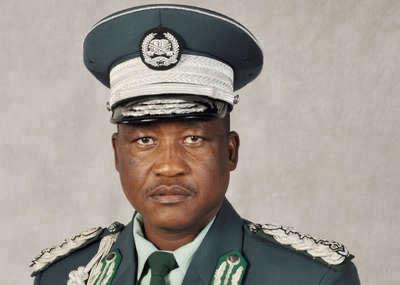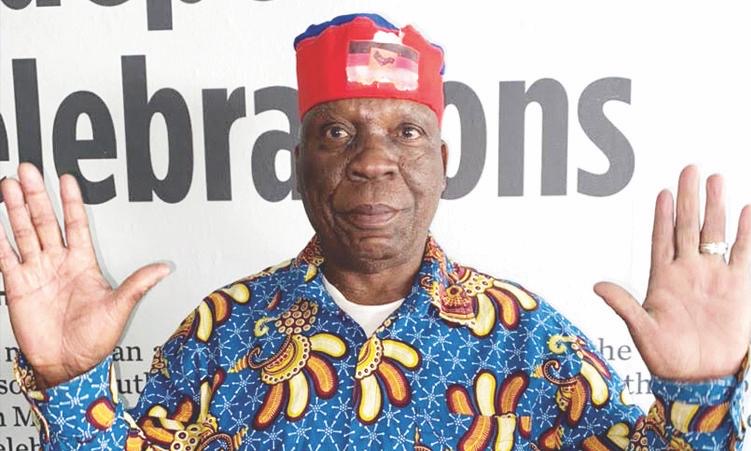In his reply to my think piece in The Namibian, ‘Should Leaders Commit Tribal Suicide?’ (16 November), Unam academic Rui Tyitende provided a riposte titled ‘One Namibia, One Nation: A Dangerous Illusion’ (26 November).
Tyitende’s reply on a topic as crucial as nation-building is welcome, especially in light of the importance president Geingob attaches to our nation-building project and the rallying motto of ‘One Namibia, one nation’.
It is not unexpected for Tyitende to argue that a leader who dedicated his life to the fight for freedom and building a nation from the ashes of apartheid is actually not a nation-builder. In his words, president Geingob is not.
We cannot fault Tyitende for his consistency. Granted, as an academic in our democracy, he has the licence to enter the public conversation on his terms, even if they border on endemic bias.
However, when an argument on a matter as important as nation-building is peppered with factual inaccuracies, the premises that inform the argument become fatally flawed.
Of course, we cannot throw out the whole article with the proverbial bathwater. But there are fundamental perfunctory flaws.
CULTURAL ‘CONUNDRUM’
First, the author states as fact that president Geingob chose to attend cultural events in the north of Namibia at the expense of other regions, and specifically mentions the Olufuko Cultural Festival.
President Geingob has never attended the Olufuko Cultural Festival.
For the past nine years, president Geingob has attended cultural festivals in the Zambezi, Omaheke, Erongo and Kavango regions.
In fact, Tyitende wrote an article after president Geingob attended the San Cultural Festival at Gobabis (Omaheke) and the Goab Cultural Festival at Okambahe (Erongo) in the same month.
Nonetheless, he perpetuated the fiction that the president prefers cultural festivals in the north over other regions, when the evidence shows a fair balance of attendance across all regions of the country.
What conclusions should we draw from these omissions and what are the ends? It is for the reader who is concerned with nation-building to discern.
And for students to ask questions about the ends flowing from these omissions, which we pray are not disseminated in the lecture halls of my alma mater, the University of Namibia.
TRIBAL TALK
Second, the author falsely concludes that when Kazenambo Kazenambo made the call for a “non-Oshiwambo” president, in itself a piteous categorisation of inferior otherness, president Geingob did not condemn these utterances.
On the contrary, president Geingob is on record distancing himself from such remarks, which do not reflect the DNA of unity he’s championed for six decades as a Swapo leader.
From his days in exile, and as founding prime minister, the president has always been known as a unifier who remained viscerally opposed to tribalism and the weaponisation of ethnicity as a tool for political power.
The politics of president Geingob has always condemned the cultivation of tribal constituencies and he urged comrades to support him on the basis of his achievements.
“Swapo is my constituency and Namibia is my constituency,” president Geingob has said.
This in itself demonstrates the consistency with which president Geingob has pursued unity and nation-building, not only from an ideational and rhetorical point of view, but also actions as reflected in the women and men who work with him as well as his broader vision for an inclusive Namibia in which no one must feel left out.
THE QUEST
Third, there is another deceptive argument which is more worrying than the inaccuracies.
The title of the article, which nefariously concludes that the ideal of ‘One Namibia, one nation’ is a dangerous illusion, invites the reader to deduce that since unity is a dangerous illusion, we should retrench it.
Ordinarily, we ought to defend and cherish unity.
But the reason Tyitende provides for abandoning unity as “a dangerous illusion” is: Thus far, the Geingob Presidency has not transcended the ideological and master narrative.
“It is largely about grandstanding and conjuring up images of a Namibia that does not exist, except in the minds of president Geingob and Hengari.”
Let us assume Tyitende is right and nation-building “has not transcended the ideological and master narrative” as he puts it.
Is that good enough reason for us to give up on the ideals of nation-building? Certainly not.
‘AN IDEA OF UNITY’
Nobel prize winner in economics Amartya Sen can assist Tyitende in thinking about matters of justice, fairness and nation-building.
In his book ‘An Idea of Justice’, itself a critique of the Rawlsian Theory of Justice, Sen argues rightly that justice should be understood as existing to a matter of degree and evaluated along a continuum.
Avoiding a binary view of the complex but ethical pursuit of justice, Sen concedes that simply because we may never achieve the ideal of justice it should not stop us from pursuing justice.
In the same vein, notwithstanding the pitfalls, we should not abandon nation-building.
During that journey, it is the place of clear-headed analysts to applaud leaders who are on the right side of unity and nation-building.
- Alfredo Tjiurimo Hengari is presidential spokesperson and holds a PhD in political science from University of Paris Pantheon-Sorbonne
Stay informed with The Namibian – your source for credible journalism. Get in-depth reporting and opinions for
only N$85 a month. Invest in journalism, invest in democracy –
Subscribe Now!







